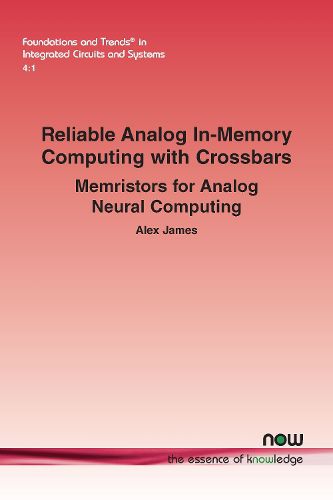Readings Newsletter
Become a Readings Member to make your shopping experience even easier.
Sign in or sign up for free!
You’re not far away from qualifying for FREE standard shipping within Australia
You’ve qualified for FREE standard shipping within Australia
The cart is loading…






This title is printed to order. This book may have been self-published. If so, we cannot guarantee the quality of the content. In the main most books will have gone through the editing process however some may not. We therefore suggest that you be aware of this before ordering this book. If in doubt check either the author or publisher’s details as we are unable to accept any returns unless they are faulty. Please contact us if you have any questions.
Artificial intelligence (AI) hardware is a growing area of research that focuses on implementing specialized hardware chips designed for machine learning, neural networks, and their applications. The AI hardware and related chips include the design of efficient processors, memory, and dedicated circuits running AI workloads at extreme efficiency and processing speeds. At the heart of neural network implementations, there are models of neurons that are primarily memory functions capable of learning and adapting to new information. Memory is essential for enabling various learning functions and is inherent in all intelligent beings.
Memristors as devices, and the systems built with them, have shown to be of great promise for use in analog neural computing. Every attempt to create an energy-efficient CMOS-based general purpose neural network processor that can compete with human intelligence seems to have failed. Memristive systems and devices are compatible and scalable with CMOS technology and show response behavior to stimuli similar to a biological neuron. This has prompted a closer look at memristive systems in academia and industry through the lens of beyond CMOS technologies, algorithms, and applications.
In this monograph, in-memory computing is presented with the memristor as the enabling memory element. The practical memristor device faces several challenges when targeting on-chip implementations. Often, there are conductance variabilities of different forms resulting from device-to-device variability, aging, circuit parasitics, read instabilities, various types of noises, and conductance drifts. This variability and how it can be analysed is introduced, along with the concept of super-resolution for compensating errors in analog computing. The application of memristive processing is also shown through echo-state networks for energy-efficient computing and image filtering processing for RF applications.
$9.00 standard shipping within Australia
FREE standard shipping within Australia for orders over $100.00
Express & International shipping calculated at checkout
This title is printed to order. This book may have been self-published. If so, we cannot guarantee the quality of the content. In the main most books will have gone through the editing process however some may not. We therefore suggest that you be aware of this before ordering this book. If in doubt check either the author or publisher’s details as we are unable to accept any returns unless they are faulty. Please contact us if you have any questions.
Artificial intelligence (AI) hardware is a growing area of research that focuses on implementing specialized hardware chips designed for machine learning, neural networks, and their applications. The AI hardware and related chips include the design of efficient processors, memory, and dedicated circuits running AI workloads at extreme efficiency and processing speeds. At the heart of neural network implementations, there are models of neurons that are primarily memory functions capable of learning and adapting to new information. Memory is essential for enabling various learning functions and is inherent in all intelligent beings.
Memristors as devices, and the systems built with them, have shown to be of great promise for use in analog neural computing. Every attempt to create an energy-efficient CMOS-based general purpose neural network processor that can compete with human intelligence seems to have failed. Memristive systems and devices are compatible and scalable with CMOS technology and show response behavior to stimuli similar to a biological neuron. This has prompted a closer look at memristive systems in academia and industry through the lens of beyond CMOS technologies, algorithms, and applications.
In this monograph, in-memory computing is presented with the memristor as the enabling memory element. The practical memristor device faces several challenges when targeting on-chip implementations. Often, there are conductance variabilities of different forms resulting from device-to-device variability, aging, circuit parasitics, read instabilities, various types of noises, and conductance drifts. This variability and how it can be analysed is introduced, along with the concept of super-resolution for compensating errors in analog computing. The application of memristive processing is also shown through echo-state networks for energy-efficient computing and image filtering processing for RF applications.